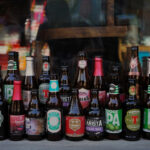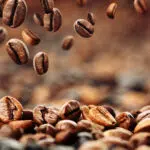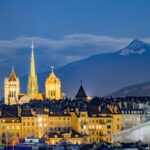National Champagne Day, celebrated informally on December 31, is all about enjoying sipping on this bubbly beverage. It comes at a perfect time on New Year’s Eve, especially for champagne lovers, giving us an even better excuse to pop open a bottle — or two!
History of National Champagne Day
Before everyone was mentioning it with hashtags on social media, National Champagne Day was introduced in a few books during the mid-2000s. In 2007, the books “Practically Useless Information on Food” and “Drink Wine Enthusiast” both recognized the holiday on August 4. However, National Champagne Day doesn’t have an official registration date. Since this bubbling drink is traditionally popped on New Year’s Eve, the majority of the world unwittingly celebrates it in that way!
After first appearing on Twitter in 2010, the hashtag #NationalChampagneDay has since increased in popularity, especially during December and January. Restaurants and alcohol traders take full advantage of this national holiday by hosting events centering around champagne to attract customers.
But where did champagne originate from? You could probably imagine yourself sipping it somewhere in the countryside of France, which would be pretty accurate because this type of wine came from north-eastern France. It has transformed from originally being a pinkish, pale still wine to the sparkling one that is associated with the region today. The Romans planted the first champagne vineyards and had begun cultivating them by around the 5th century, or earlier.
After the death of Louis XIV of France in 1715, the court of the Duke of Orléans, Philippe II, made the sparkling version of champagne the drink of choice among the French aristocracy. During the 19th century, the modern champagne industry began to take shape. This period saw the establishment of several of today’s famous champagne houses, including Krug, Pommery, and Bollinger. However, the two World Wars in the early 20th century caused major stumbling blocks for the rise of this industry. The Russian and American champagne markets were also lost due to the Russian Revolution and Prohibition.
Fast forward to the modern era, and champagne’s popularity surged once again. The wine was once more associated with both extravagance and celebration, and sales quadrupled since 1950. Today, the Champagne region of France — made up of the Aube, Marne, Haute-Marne, and Ardennes departments — produces over 200 million bottles with a worldwide market, enticing French authorities to look into expanding the 86,5000-acre region to facilitate more production.
National Champagne Day timeline
The Romans are the first to plant vineyards in the north-eastern region of France, which kicks off the cultivation process.
Hugh Capet is crowned King of France at Rheims Cathedral and starts the tradition of bringing successive monarchs to the Champagne region — the early wine of this region becomes a prominent display at coronation banquets.
Following the death of Louis XIV of France, the court of Philippe II makes the sparkling version of champagne the drink of choice among the French aristocracy.
After some major setbacks in imports after the World Wars, Russian Revolution, and Prohibition during the 20th century, champagne once again becomes popular across the globe, with sales quadrupling.
National Champagne Day FAQs
What day is World Champagne Day?
The annual global Champagne Day is on October 23. With unexpected challenges and hardships around the world, even the smallest moments in life are a cause for celebration!
What is champagne made of?
Typical champagne or U.S. sparkling wine is made from a blend of three grapes — Chardonnay, Pinot Noir, and Pinot Meunier. If you see champagne or U.S. sparkling wine called “Blanc de Blancs”, it’s made exclusively from Chardonnay.
Does champagne get you drunk?
Well, yes, because it’s an alcoholic beverage. Take care if you are planning to toast the New Year with champagne — the bubbles in this most celebratory of tipples really do get you inebriated more quickly. Many people say that champagne bubbles “go straight to their head”, making them giggly and light-headed.
How To Celebrate National Champagne Day
Well, drink champagne!
Since it’s New Year’s Eve anyway, there’s really every reason to pop open a bottle of bubbly and celebrate in style. Champagne is a celebratory party drink, usually associated with luxury, so if you have been saving a bottle, consider sipping and savoring the taste.
Have a champagne breakfast
There’s a reason champagne breakfasts are a thing! Mimosas first thing in the morning go well with everything, from bacon and eggs to croissants, hash browns, and, of course, strawberries.
Put on a champagne playlist
If you’re a rap and hip hop soul at heart, you’ll enjoy this. Some mainstream rappers love to mention champagne in their songs, as well as artists such as Oasis, Willie Nelson, and Jimmy Buffett, to name a few. Here are a few songs you can add to your playlist: “Champagne Problems” by Meghan Trainor, “Drunk in Love” by Beyoncé, “My House” by Flo Rida, “Champagne” by Sugarcult — the list goes on!
5 Facts About Champagne That Will Pop Your Mind
Millions of bubbles, literally
There are about 49 million bubbles inside a standard bottle of champagne.
Bubbling fast
A standard size glass emits 30 bubbles every second.
Pressure, pressure, pressure
The pressure in a champagne bottle is about three times the amount of pressure inside car tires.
Carbonation upon carbonation
Champagne has three times more carbonation than beer.
Winston Churchill loved it
Winston Churchill was one of the biggest champagne drinkers on record — between 1908 and 1965, the former British Prime Minister drank an estimated 42,000 bottles!
Why We Love National Champagne Day
Most countries love champagne
People might assume the French love champagne the most, but they are not the only ones! The U.K. is actually high on the list of champagne consumption. It ranks in 4th place with 0.45 liters per person — behind only Switzerland, Belgium, and France.
It makes us feel luxurious
Champagne was traditionally associated with luxury, nobility, and celebration in 18th-century France, but the theme still applies today! Most of us might not be from a line of French nobility, but this doesn’t mean champagne is not a universally fun party drink! For reference, the most expensive bottle of champagne costs $2.07 million, which was designed by Alexander Amosu in collaboration with Swarovski, and handcrafted from 18-carat solid gold, with a deep-cut 19-carat white diamond at its center.
It reminds us of James Bond
Well, apart from shaken not stirred martinis. If you’re a Bond fan, you would know how much 007 loved his champagne. In fact, James Bond has been spotted drinking champagne more than 35 times during the films. It’s the drink he reaches for more than any other. And when it comes to labels, Bond prefers Bollinger. The brand has specifically been shown in 14 of his flicks.
National Champagne Day dates
| Year | Date | Day |
|---|---|---|
| 2025 | December 31 | Wednesday |
| 2026 | December 31 | Thursday |
| 2027 | December 31 | Friday |
| 2028 | December 31 | Sunday |
| 2029 | December 31 | Monday |













